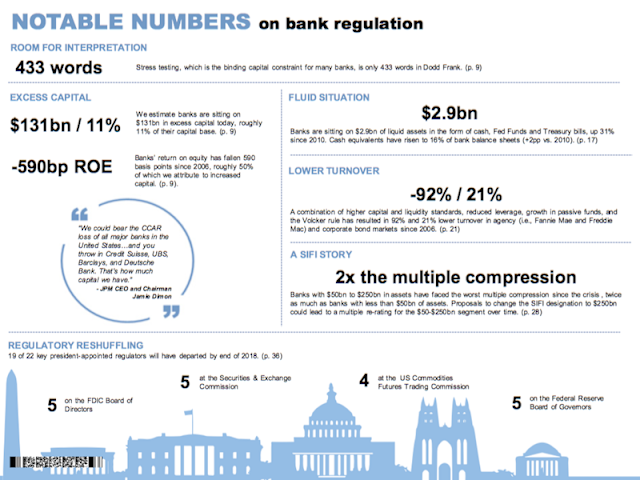Rethinking Middle Management: Their Essential Contribution To Business Growth

Table of Contents
The Bridge Between Leadership and Employees
Middle managers act as a vital bridge, connecting upper management's strategic vision with the daily operations of individual teams. Their ability to effectively facilitate communication and collaboration, and to mentor and develop future leaders, is paramount to a thriving organization.
Facilitating Communication and Collaboration
Middle managers translate complex strategic objectives from upper management into clear, actionable plans for their teams. This ensures everyone understands the "why" behind their work, fostering a sense of purpose and shared direction. Effective middle managers also facilitate smooth communication flows in both directions, ensuring that feedback and challenges reach the appropriate levels.
- Improved communication reduces errors and misunderstandings: Clear communication minimizes costly mistakes and project delays.
- Facilitates quicker problem-solving and decision-making: Open lines of communication allow for rapid identification and resolution of issues.
- Enhances employee understanding of company goals: When employees understand the bigger picture, they are more engaged and productive.
Mentoring and Developing Future Leaders
Investing in employee development is not just a feel-good initiative; it's a strategic imperative. Middle managers play a crucial role in identifying high-potential employees, providing mentorship, and preparing them for future leadership roles. This creates a strong talent pipeline and ensures organizational sustainability.
- Investing in employee development increases retention and morale: Employees who feel valued and invested in are more likely to stay with the company.
- Creates a pipeline of future leaders within the organization: Succession planning is smoother and more effective with a strong internal talent pool.
- Promotes a culture of continuous improvement and innovation: A learning-focused environment encourages employees to develop new skills and explore innovative solutions.
Driving Operational Efficiency and Productivity
Effective middle managers are masters of optimization. They streamline workflows, identify and eliminate bottlenecks, and allocate resources efficiently, maximizing team output and minimizing waste. This translates directly into increased productivity and profitability.
Optimizing Processes and Resource Allocation
By analyzing workflows and identifying inefficiencies, middle managers can implement improvements that significantly boost productivity. This includes optimizing resource allocation to ensure that teams have the tools and support they need to succeed.
- Implementation of efficient processes leads to faster project completion: Streamlined workflows ensure projects are completed on time and within budget.
- Reduced operational costs through optimized resource utilization: Minimizing waste and maximizing efficiency directly impacts the bottom line.
- Increased productivity through streamlined workflows: A well-organized and efficient process leads to higher output and better results.
Monitoring Performance and Implementing Improvements
Regular performance monitoring is vital for identifying areas needing improvement. Middle managers track key performance indicators (KPIs), provide regular feedback, and implement strategies to drive continuous improvement. This data-driven approach ensures that teams are consistently meeting their objectives.
- Data-driven decision-making leads to targeted improvements: Using performance data to inform decisions leads to more effective solutions.
- Regular performance monitoring ensures goals are met: Consistent tracking allows for early identification and correction of potential issues.
- Early identification of issues prevents larger problems: Addressing problems promptly prevents them from escalating and causing major disruptions.
Fostering Employee Engagement and Motivation
A highly engaged workforce is a productive workforce. Middle managers create a positive and supportive work environment, provide regular feedback, and offer recognition, boosting employee morale and fostering a sense of belonging.
Creating a Positive and Supportive Work Environment
Middle managers set the tone for their teams. By fostering open communication, mutual respect, and shared goals, they create a workplace where employees feel valued, supported, and motivated.
- High employee morale leads to increased productivity and reduced turnover: Happy employees are more productive and less likely to leave the company.
- A positive work environment attracts and retains top talent: Companies with positive work environments are more attractive to prospective employees.
- Improved collaboration between team members: A positive atmosphere fosters teamwork and collaboration.
Providing Regular Feedback and Recognition
Regular feedback, both constructive criticism and positive reinforcement, is essential for employee growth and motivation. Middle managers play a critical role in providing this feedback and recognizing employee achievements.
- Constructive feedback helps employees improve their skills and performance: Regular feedback helps employees identify areas for improvement and grow professionally.
- Recognition and rewards boost employee morale and motivation: Acknowledging accomplishments motivates employees and strengthens their commitment to the company.
- Improved employee performance contributes to overall business success: Motivated and engaged employees are more productive and contribute to better business outcomes.
Conclusion: Rethinking Middle Management for Business Growth
Rethinking middle management reveals their critical role in driving business growth. By investing in their development, empowering them with the right tools and support, and recognizing their strategic importance, organizations can unlock significant improvements in communication, efficiency, employee engagement, and ultimately, the bottom line. Investing in your middle management is not an expense; it's a strategic investment in the future success of your organization. Don't underestimate the power of effective middle management – rethink their role and unlock the full potential of your organization. Start developing your middle management team today and witness the positive impact on your business growth.

Featured Posts
-
 Trumps Use Of Presidential Pardons A Second Term Analysis
May 16, 2025
Trumps Use Of Presidential Pardons A Second Term Analysis
May 16, 2025 -
 Athletic Club De Bilbao In Depth Coverage On Vavel Usa
May 16, 2025
Athletic Club De Bilbao In Depth Coverage On Vavel Usa
May 16, 2025 -
 Dangerous Everest Attempt Climbers Plan Week Long Ascent With Anaesthetic Gas
May 16, 2025
Dangerous Everest Attempt Climbers Plan Week Long Ascent With Anaesthetic Gas
May 16, 2025 -
 Broadcoms V Mware Deal A Potential 1050 Price Increase For At And T
May 16, 2025
Broadcoms V Mware Deal A Potential 1050 Price Increase For At And T
May 16, 2025 -
 Goldman Sachs Trumps 40 50 Oil Price Stance Revealed Through Social Media
May 16, 2025
Goldman Sachs Trumps 40 50 Oil Price Stance Revealed Through Social Media
May 16, 2025
Latest Posts
-
 Braves Vs Padres Predicting Atlantas First Victory
May 16, 2025
Braves Vs Padres Predicting Atlantas First Victory
May 16, 2025 -
 Tatis Back Rain Delay Padres Pregame Report And Lineup News
May 16, 2025
Tatis Back Rain Delay Padres Pregame Report And Lineup News
May 16, 2025 -
 San Diego Padres Pregame Report Rain Delay Tatis In Lineup Campusanos Call Up
May 16, 2025
San Diego Padres Pregame Report Rain Delay Tatis In Lineup Campusanos Call Up
May 16, 2025 -
 Padres Game Day Rain Delay Impacts Lineup Tatis And Campusano Updates
May 16, 2025
Padres Game Day Rain Delay Impacts Lineup Tatis And Campusano Updates
May 16, 2025 -
 Padres Pregame Rain Delay Tatis Returns Campusano Called Up
May 16, 2025
Padres Pregame Rain Delay Tatis Returns Campusano Called Up
May 16, 2025
